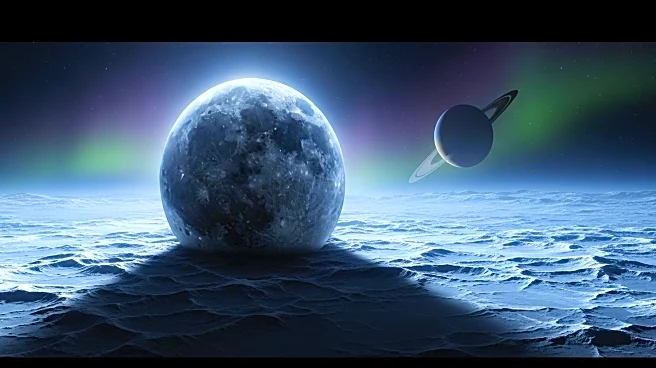What is the story about?
What's Happening?
A new study suggests that organic compounds detected in the plumes of Saturn's moon Enceladus may originate from its frozen surface rather than its subsurface ocean. Researchers recreated Enceladus' environment in a lab, finding that radiation from Saturn's magnetic field could drive the formation of these compounds. This raises doubts about the presence of life in Enceladus' ocean, although it remains a possibility.
Why It's Important?
The findings challenge previous assumptions about the potential habitability of Enceladus' ocean, emphasizing the need for caution in interpreting organic compounds as signs of life. Understanding the origins of these compounds is crucial for astrobiology, as it informs the search for life beyond Earth. The study highlights the complexity of detecting biosignatures and the importance of considering alternative explanations.
Beyond the Headlines
The study underscores the challenges of astrobiological research, where distinguishing between biological and abiotic processes is often difficult. It also highlights the role of radiation in shaping the chemical environment of icy moons, which could have implications for other celestial bodies in the solar system.
















